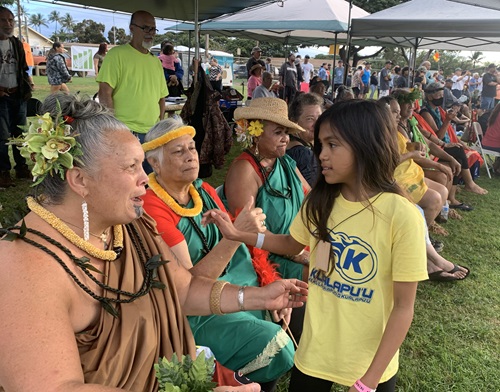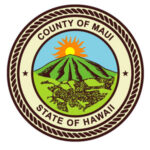As part of ongoing efforts to support culturally relevant education, Maui Economic Development Board’s (MEDB) STEMworks™ AFTERschool Program recently organized a trip to Molokai for eight of its Maui Island teachers. “Offering an approach to merge traditional Hawaiian knowledge with modern STEM (science, technology, engineering, mathematics) techniques, these Molokai sessions supported and inspired not only teachers, but also students,” said Lalaine Pasion, STEMworks Program Specialist. “This type of cultural exchange is a direct investment in our future. When we inspire and provide opportunities for educators, we empower them to shape a generation with knowledge, creativity, and compassion.”

Agreeing, Maui STEMworks Facilitator, Mark Guaglione, said, “I learn so much from visiting STEM educators on different islands, such as Uncle Bobby at ‘Āina Pulapula. Uncle Bobby’s six-acre farm is a part of the World-Wide Opportunities on Organic Farms network. Here, sustainable agriculture practices, crucial for island self-reliance and environmental stewardship, were on display. The farm’s achievement of 70-percent food self-sufficiency provided a tangible example of successful integration of traditional farming methods with modern agriculture, showcasing sustainable agricultural practices essential for island self-reliance.”
A tour of Molokai Sea Farms showed educators the complexities and challenges of shrimp farming. This visit highlighted the significance of local produce in a globalized and competitive economy and the impact of community support on local industries. Pasion recalled, “Another significant moment was the engagement with Kumu Gonzales at Kaunakakai. He demonstrated his approach to integrating Hawaiian culture into computer science education using petroglyphs in Code.org’s STEMworks lessons. This presented a unique and culturally relevant method of STEM education.”
Observing the Makahiki Festival on Molokai, the visiting teachers also explored historic sites, such as Kalaupapa, which offered cultural immersion to deepen the understanding of Hawaiian traditions and history. “Teachers from Maui who joined these Molokai sessions gained invaluable insights into integrating traditional Hawaiian wisdom with contemporary educational strategies,” Pasion concluded. “This experience enriched their teaching methodologies, enabling them to integrate culturally sensitive and relevant materials into their classrooms. The Molokai sessions, a part of STEMworks AFTERschool Program, have contributed to bridging the gap between traditional and modern education. Such initiatives are crucial for preparing educators to foster a generation that is knowledgeable, culturally aware, and technologically adept.”
STEMworks education inspires students to experiment, relate, and think critically about the future of their island home. Lalaine Pasion, STEMworks Program Specialist
